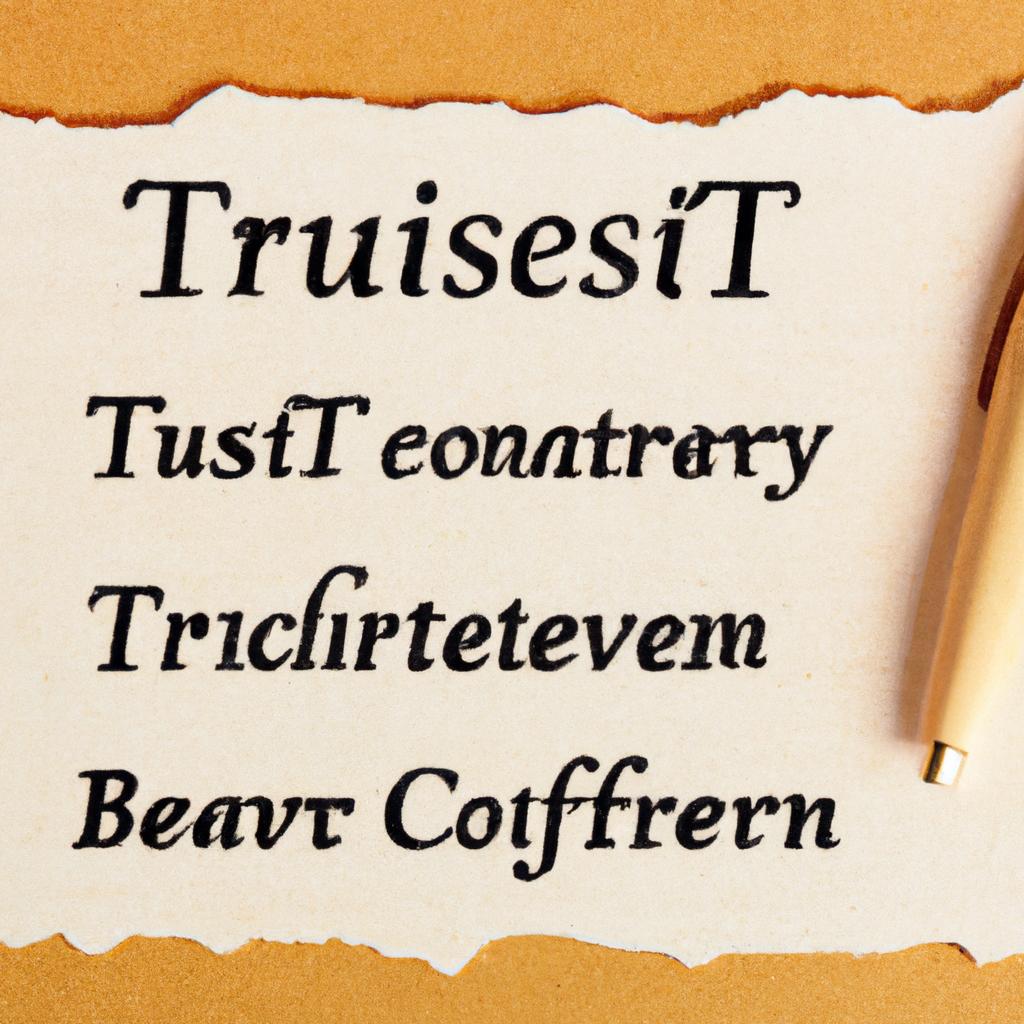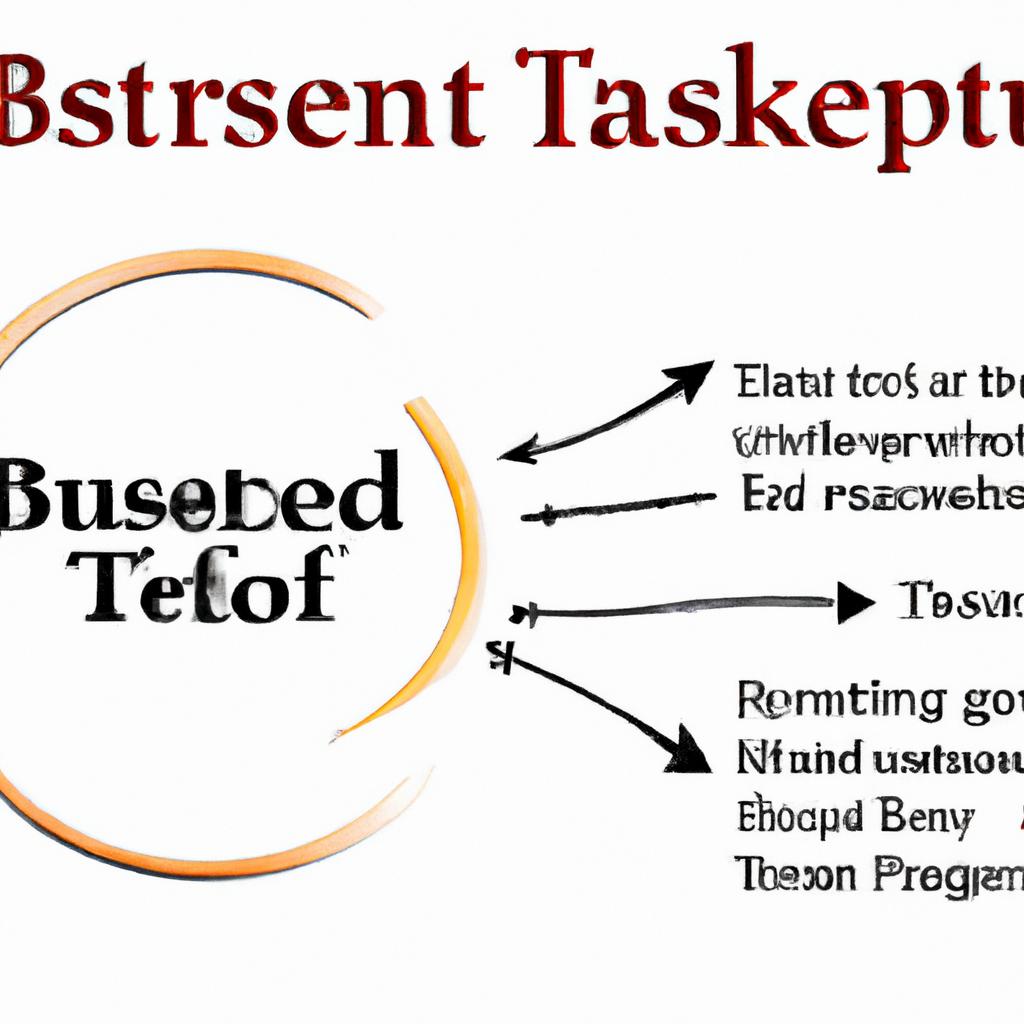As seasoned legal professionals at Morgan Legal Group in New York City, we understand the importance of careful planning when it comes to estate matters. One key component of this planning is the establishment of a trust, a valuable tool that can provide peace of mind and security for individuals and families. Knowing when to set up a trust can be a critical decision, and in this article, we will delve into the factors to consider when determining the optimal time to create this essential legal instrument. Whether it be for asset protection, tax planning, or ensuring the smooth transfer of assets to loved ones, we are here to guide you through the process with our expertise in estate planning, probate, elder law, Wills, and trusts.
Key Considerations for Establishing a Trust
Trusts are powerful estate planning tools that can help individuals safeguard their assets and provide for their loved ones. When considering setting up a trust, there are several key factors to keep in mind:
- Consider your goals and objectives: Before establishing a trust, it is important to clearly define your goals and objectives. Whether you want to protect your assets, minimize estate taxes, or provide for a disabled family member, having a clear understanding of your intentions will help guide the trust creation process.
- Choose the right type of trust: There are several types of trusts available, each with its own unique features and benefits. From revocable living trusts to irrevocable trusts, it is essential to select the right type of trust that aligns with your goals and estate planning needs.

Benefits of Establishing a Trust for Asset Protection
When considering the , it is important to understand the optimal timing for setting up such a legal entity. Trusts can offer significant protection for your assets and ensure that your wishes are carried out after your passing. Setting up a trust at the right time can provide you with peace of mind and security for your loved ones.
One key factor to consider when deciding when to set up a trust is your current financial situation. If you have a substantial amount of assets that you want to protect from creditors, lawsuits, or other potential risks, establishing a trust sooner rather than later can be beneficial. Additionally, if you have specific wishes for how your assets should be distributed after your death, creating a trust allows you to outline these instructions clearly. By setting up a trust at the appropriate time, you can ensure that your assets are protected and distributed according to your wishes.

Factors to Determine the Right Time to Set Up a Trust
There are several key factors to consider when determining the right time to set up a trust. One of the first factors to take into account is the size of your estate. If you have a large estate that includes valuable assets such as real estate, investments, or business interests, setting up a trust can help protect those assets for future generations. Trusts can also be used to minimize estate taxes and avoid probate, ensuring that your loved ones receive their inheritance in a timely manner.
Another important factor to consider is your family situation. If you have minor children or beneficiaries with special needs, setting up a trust can provide for their care and financial stability after you pass away. Trusts can also be used to control how and when your assets are distributed to your heirs, ensuring that they are used for their intended purpose. Consulting with an experienced estate planning attorney can help you determine the right time to set up a trust based on your individual circumstances and goals.

Strategic Planning for Establishing a Trust in New York City
As experienced estate planning attorneys in New York City, we understand the importance of strategic planning when it comes to establishing a trust. Setting up a trust can be a pivotal moment in ensuring your assets are protected and distributed according to your wishes. It’s essential to consider the following factors before deciding when to set up a trust:
- Financial Stability: Assess your current financial situation and determine if you have enough assets to warrant the creation of a trust.
- Estate Planning Goals: Clearly define your estate planning goals and objectives to determine if a trust aligns with your long-term plans.
- Age and Health: Consider your age, health, and life expectancy when deciding when to establish a trust to ensure it meets your needs at various stages of life.
Timing is crucial when it comes to setting up a trust in New York City. Consulting with an experienced estate planning attorney can help you navigate the complexities of trust creation and ensure your assets are safeguarded for future generations.
Q&A
Q: When should I set up a trust?
A: Setting up a trust can be beneficial for individuals who want to protect their assets and ensure their wishes are carried out after they pass away. Timing is key when deciding to establish a trust.
Q: What are the benefits of setting up a trust?
A: By setting up a trust, you can avoid probate, maintain privacy, and control how your assets are distributed. Additionally, trusts can offer tax advantages and provide for loved ones who may not be capable of managing their own finances.
Q: How do I know if I need a trust?
A: If you have significant assets, own real estate in multiple states, have minor children, want to provide for a loved one with special needs, or simply want to avoid the probate process, setting up a trust may be a good option for you.
Q: Should I set up a trust while I’m still alive or wait until after I pass away?
A: While you can set up a trust at any point in your life, setting one up while you’re still alive allows you to have more control over your assets and how they are managed. It also provides the opportunity to make any necessary changes or adjustments as your circumstances change.
Q: Is setting up a trust expensive?
A: The cost of setting up a trust can vary depending on the complexity of your financial situation and the type of trust you choose. While there are upfront costs, the benefits of a trust often outweigh the initial expense.
Q: How can I ensure my trust is set up correctly?
A: It’s important to work with a qualified estate planning attorney who can help you navigate the process of setting up a trust. They can ensure that your trust is legally sound and tailored to your specific needs and wishes.
In Conclusion
In conclusion, knowing when to set up a trust can be a critical decision in securing your assets and ensuring the well-being of your loved ones. By understanding the various factors and circumstances that may warrant establishing a trust, you can take proactive steps to protect your legacy for generations to come. Consult with a legal professional to discuss your specific needs and options for creating a trust that aligns with your goals and priorities. Remember, the time to set up a trust is now, as tomorrow is never promised. Secure your future today.
 When it comes to protecting our assets and ensuring the financial security of our loved ones, we all want to make the best decisions possible. One way to do this is by setting up a trust. Trusts have been around for centuries and have become a popular tool in estate planning. But what exactly is a trust and when is the right time to set one up? In this article, we will explore the concept of trusts, their benefits, and when it is appropriate to set one up. Let’s get started!
When it comes to protecting our assets and ensuring the financial security of our loved ones, we all want to make the best decisions possible. One way to do this is by setting up a trust. Trusts have been around for centuries and have become a popular tool in estate planning. But what exactly is a trust and when is the right time to set one up? In this article, we will explore the concept of trusts, their benefits, and when it is appropriate to set one up. Let’s get started!
What is a Trust?
A trust is a legal entity that holds assets on behalf of a beneficiary or beneficiaries. It is created by a grantor (person creating the trust) and managed by a trustee (person responsible for managing the assets in the trust). There are different types of trusts, including revocable and irrevocable trusts, and they can serve various purposes, such as asset protection, tax planning, and distribution of assets.
When to Set Up a Trust?
While there is no set answer to when is the right time to set up a trust, there are some critical factors to consider. Here are some situations where setting up a trust may be beneficial.
1. You have minor children:
If you have minor children, it is crucial to have a plan in place to ensure their financial well-being in case of your untimely passing. Setting up a trust can provide your children with financial support until they reach a certain age specified in the trust. It also allows you to choose a trustee who will manage the assets and make distributions based on your wishes.
2. You have a disabled or special needs dependent:
For individuals with dependent family members who have special needs, setting up a trust can be a vital tool in managing their financial future. A special needs trust can ensure that your loved one has the necessary resources for their care without disqualifying them from government benefits they may be receiving.
3. You have a high net worth:
Individuals with considerable assets are at a higher risk of facing legal disputes over their wealth. Setting up a trust can provide protection from potential lawsuits, creditor claims, and other financial challenges.
4. You own a business:
For business owners, a trust can serve as a way to protect their business assets in case of unexpected events such as a divorce or legal action. It can also ensure a smooth succession plan for the future, allowing the business to continue even after the owner’s passing.
5. You want to minimize estate taxes:
Estate taxes can significantly reduce the value of your assets passed down to your beneficiaries. Setting up a trust can help minimize these taxes and ensure that your assets are distributed according to your wishes.
Benefits of Setting Up a Trust
1. Avoid probate:
One of the significant benefits of setting up a trust is avoiding probate. Probate is a legal process where a court oversees the distribution of assets to beneficiaries after the grantor’s death. With a trust, the assets are already designated and managed by a trustee, eliminating the need for court involvement.
2. Protect assets from creditors:
As mentioned earlier, trusts can provide asset protection from creditors, lawsuits, and other financial challenges. By placing assets in a trust, they are no longer considered personal property and are protected from potential claims.
3. Maintain privacy:
Probate is a public process, meaning all the details of your estate and assets become public record. Trusts, on the other hand, offer privacy and confidentiality as they do not go through the probate process.
4. Flexible distribution of assets:
With a trust, the grantor has more control in determining how and when assets are distributed to beneficiaries. You can set specific guidelines for the distributions, such as age or certain milestones, ensuring that the assets are used wisely.
5. Tax benefits:
As mentioned earlier, setting up a trust can help minimize estate taxes, ultimately saving your beneficiaries a significant amount of money. Irrevocable trusts can also offer tax benefits, such as reducing the overall taxable value of your estate.
Practical Tips for Setting Up a Trust
1. Consult with a professional:
When it comes to setting up a trust, it is crucial to seek the advice of a professional, such as an estate planning attorney or financial advisor. They can help you determine the right type of trust for your specific needs and ensure all necessary legal requirements are met.
2. Consider the potential costs:
Setting up a trust does come with costs, such as legal fees and trustee fees. It is essential to factor in these expenses when deciding if a trust is the right option for you.
3. Choose a trustworthy trustee:
Selecting the right trustee is crucial in ensuring that your wishes are carried out correctly. It is essential to choose someone you trust and who has the necessary expertise to manage your assets properly.
In Conclusion
Setting up a trust can provide significant benefits for individuals looking to protect their assets and ensure their loved ones are taken care of after they are gone. While there is no specific timeframe for setting up a trust, it is crucial to consider your specific circumstances and consult with a professional for guidance. By taking the necessary steps to set up a trust, you can have peace of mind knowing that your assets are secure and will be distributed according to your wishes.

